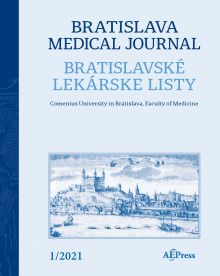Journal info
|
||||
Select Journal
Journals
Bratislava Medical Journal 2024 Ahead of print 2023 2022 2021 2020 2019 2018 2017 2016 2015 2014 2013 2012 Endocrine Regulations General Physiology and Biophysics Neoplasma Acta Virologica Studia Psychologica Cardiology Letters Psychológia a patopsych. dieťaťa Kovove Materialy-Metallic Materials Slovenská hudbaWebshop Cart
Your Cart is currently empty.
Info: Your browser does not accept cookies. To put products into your cart and purchase them you need to enable cookies.
Bratislava Medical Journal Vol.116, No.1, p.41-46, 2015 |
||
| Title: Chemical composition and hepatoprotective activity of ethanolic root extract of Taraxacum Syriacum Boiss against acetaminophen intoxication in rats | ||
| Author: A. Nazari, H. Fanaei, A. R. Dehpour, G. Hassanzadeh, M. Jafari, M. Salehi, M. Mohammadi | ||
| Abstract: Aim: In the present study, the role of ethanol extract of root of Taraxacum Syriacum Boiss (TSBE) against hepatotoxicity caused by acetaminophen (APAP) was studied. Methods: The chemical composition of roots of Taraxacum Syriacum Boiss was analyzed by SPME-GC/MS method. Hepatocellular injuries induced by acetaminophen (APAP) were assessed by liver histology, serum aminotransferase activities, antioxidant enzymes activity and lipid peroxidation in liver tissue. Results: TSBE was observed to exhibit hepatoprotective effect as demonstrated by significant decrease in serum glutamate oxaloacetate transaminase (SGOT), serum glutamate pyruvate transaminase (SGPT), and alkaline phosphatase (ALP) concentration, and by preventing liver histopathologic changes in rats with APAP hepatotoxicity. Administration of APAP, significantly increased, lactate dehydrogenase (LDH) and catalase (CAT) activity in liver tissue and pretreatment with TSBE returned these parameters to control group, moreover TSBE reduces APAP-induced hepatic Glutathione (GSH) depletion. Carvacrol (6.7 %) was the main polyphenolic compound of plant sample. Our results demonstrated hepatoprotective activity of TSBE in rat in vivo. Conclusions: We believe that the mechanism by which the extract was able to protect the liver from the oxidative stress generated by APAP is due to its antioxidant activity. These phenolic compounds of the extract act as antioxidants and free radical scavengers and reduce or inhibit the oxidative stress induced by APAP administration (Tab. 3, Fig. 3, Ref. 39). |
||
| Keywords: hepatoprotective, Taraxacum Syriacum Boiss, acetaminophen, phenolic compounds. | ||
| Year: 2015, Volume: 116, Issue: 1 | Page From: 41, Page To: 46 | |
| doi:10.4149/BLL_2015_008 |
||
|
|
 download file download file |
|

